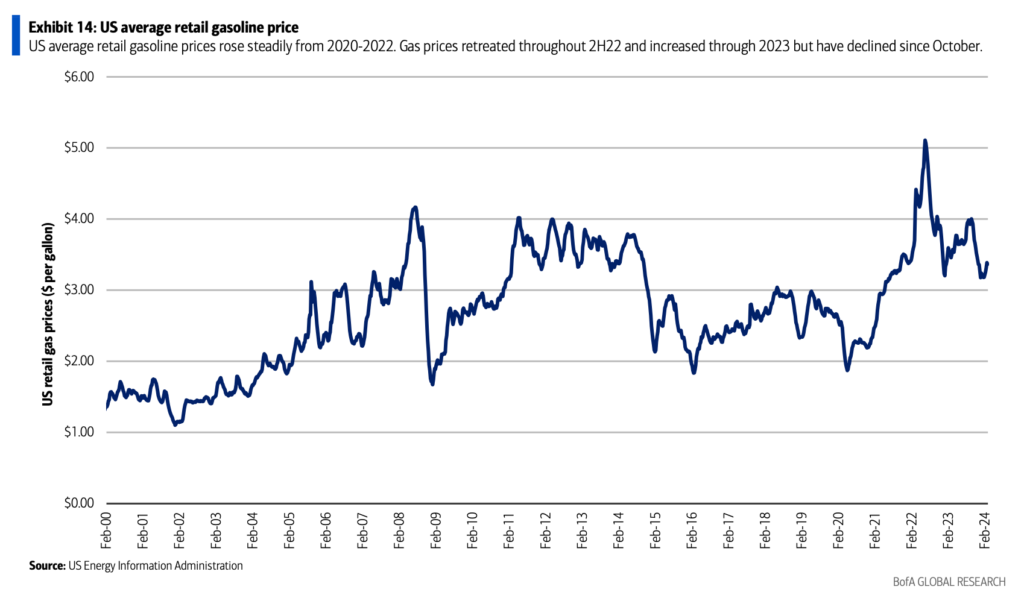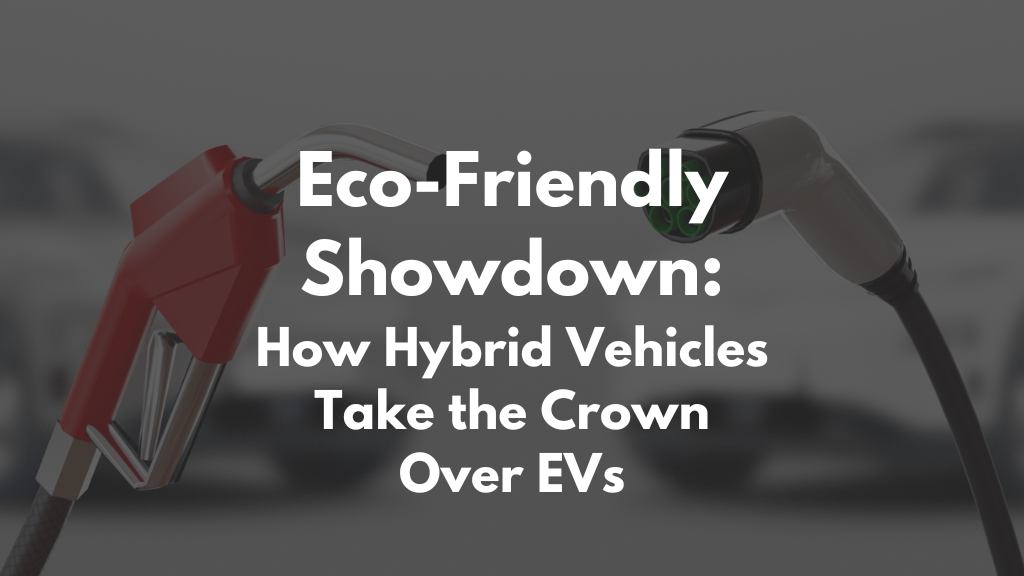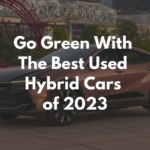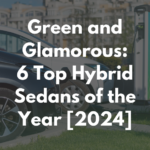Last Updated on April 1, 2024 by inaz Ameera
KEYPOINTS:
- Charger issue, will it be solved in the nearest future?
- Toyota predicted it right, hybrid is now your best bet
The landscape of electric vehicles (EVs) is becoming increasingly prominent in the news, perhaps more so than their actual presence on the streets. Tesla has marked a significant milestone as the Model 3 sedan began to emerge from a California production line, signaling Tesla’s move toward mass production. Meanwhile, Volvo announced its plans to phase out purely fossil fuel-powered vehicles within two years, aiming for a portfolio that includes five electric models. France has set an ambitious goal to stop the sale of gasoline and diesel vehicles by 2040, reflecting a global push towards electric vehicles driven by decreasing costs and a collective desire to combat climate change.
However, this forward-looking enthusiasm contrasts starkly with the current reality in car showrooms, especially in the U.S., where low gasoline prices have fueled a surge in sales of pickups and SUVs.
Although electric and plug-in cars date back to the 1800s, their market penetration remains nascent. Last year, Chinese consumers led the world in electric vehicle purchases, buying approximately 289,000 units. European buyers followed with 215,000 purchases, and Americans bought 150,000. These figures are modest compared to the 92 million internal combustion vehicles sold worldwide in 2016, with 17.6 million of those sales in the U.S. alone.
However, let’s ask the real question: is EV really the way to go?
EV vs Gas Cars
Let’s see the comparison of mileage and costs for EV cars compared to your conventional car, running on gas.
Comparing electric vehicles (EVs) to gasoline cars involves several factors, including mileage efficiency, fueling and charging costs, maintenance, and initial purchase prices. Let’s break down these factors:
Mileage Efficiency
- EVs: Electric vehicles are better at turning stored energy into motion, allowing them to cover greater distances on the same amount of energy compared to gasoline vehicles, which require an equivalent amount of fuel. The efficiency of electric vehicles is typically gauged in miles per kilowatt-hour (kWh).
- Gasoline Cars: The efficiency of gasoline vehicles is quantified in miles per gallon (MPG). Because internal combustion engines inherently convert a smaller portion of fuel’s energy into kinetic energy, gasoline cars are generally less efficient compared to electric vehicles.
Fueling and Charging Costs
As of March 2024, the average electricity rate in the United States is about 16.19 cents per kilowatt-hour (kWh), with rates fluctuating by state. Hawaii holds the record for the highest electricity prices at 41.6 cents/kWh, contrasted by North Dakota, which offers the lowest at 10.23 cents/kWh. An alternative report puts the average electricity price in the U.S. at 15.95 cents per kWh, suggesting a ballpark figure for expected costs.
Charging an electric vehicle can cost differently based on local electricity prices and the timing of the charge, as costs may increase during peak periods. Overall, electric vehicles tend to be less expensive to power compared to gasoline vehicles, particularly when charging at home. This cost advantage is further enhanced if one uses solar energy or takes advantage of lower rates available during off-peak hours.

The fuel expenses for gasoline vehicles, on the other hand, are tied to the volatile oil market, with prices that can shift based on geographic location and temporal factors. Typically, fueling gasoline cars costs more than the electricity expenses for charging electric vehicles.
Maintenance Costs
- EVs: Electric vehicles usually incur fewer maintenance expenses compared to gasoline-powered cars. This is because they have fewer mechanical components, eliminate the need for engine oil changes, and lack spark plugs, timing belts, or fuel filters that require replacement once in a while.
- Gasoline Cars: Maintenance tends to be pricier for vehicles with internal combustion engines due to their complexity and the necessity for frequent oil changes, repairs to the exhaust system, and replacement of various engine parts.
Initial Purchase Price
- EVs: Historically, electric vehicles have carried a higher upfront cost compared to similar gasoline-powered cars, largely because of the expense associated with their batteries. Yet, as technology progresses, these prices are coming down. Additionally, numerous countries provide incentives or tax benefits to mitigate the initial price disparity.
- Gasoline Cars: Usually are much cheaper than electric vehicles.
Taking into account the total cost of ownership, which encompasses the buying price, costs of fuel or electricity, maintenance, and potential tax benefits, electric vehicles may prove to be more cost-effective over time, despite their higher initial cost. The degree of savings will depend on personal factors like driving habits, local prices for electricity and gasoline, and the particular models being compared.
Example Comparison:
- With an electric vehicle that gets 5 miles per kilowatt-hour (kWh) and an electricity cost of $0.13 per kWh, the cost per mile is approximately $0.026
- Gas car that gets 27 MPG with gasoline at $3.00 per gallon, the cost per mile is $0.11.
- 5 miles per kWh is roughly equivalent to 168 MPG, so you would definitely save buckets on gas money if you are using and EV.
This comparison is just a simple example, and real-world costs may differ. Savings on maintenance and potential tax benefits for electric vehicles can additionally influence the overall cost of ownership, often tilting it in favor of electric vehicles.
However, this comes to next question. How efficient and reliable is EV charging in the real world?
The Truth About EV Chargers
Charging at Home
Most of the time, EV owners have the privilege to charge their cars at home. After their purchase, they would also get a home charging station installed. There are two main types of home charging – Level 1 and Level 2.
Level 1 Charging
- Standard 120-volt outlet
- Just like charger a phone, laptop or any other device
- Slow charging – provides a maximum of 5 miles range per hour of charging.
- Suitable for overnight charging or for short distance drives.
Level 2 Charging
- A 240-volt outlet.
- Charges much faster than Level 1 – up tp 20 to 60 miles of range per hour of charging.
- Most owners would have this installed for faster charging.
Charging in Public
Public Charging Stations
- When charging at home isn’t an option, numerous public charging points are accessible in various places like malls, parking lots, and beside key roadways.
- These facilities frequently provide Level 2 and DC fast charging options, capable of powering an EV’s battery from empty to 80% within approximately 20 to 30 minutes, varying by the car and charger capability.
- However, how reliable is this option? What happens when there’s no chargers? What happens when every EV owner in your county needs to charge? Let’s take a look what happened last Thanksgiving to prove a point.
- The waiting line is crazy! That’s such a waste of time, compared to pouring gas and going about your day. Didn’t we used to believe that time is golden?
- This will definitely happen again and more frequently in the future as the EV supply and demand increases.
- Time is only one thing, but what about other issues? Having an EV might make you look good, but the real problems are not often sold together at the showroom.
- Wall Street Journal discovered three main issues with public chargers
1. Out of order
- 27% of chargers are out of order, which brings you to the hassle of finding another functioning one. What are you going to do when your car dies along the way?
2. Payment issues
- The solution is to make payment via app, but what about older people? Does EV cars not account for the older demographics? What if your phone is out of battery, or has no connection? This just brings us to a much deeper rabbit hole of issues.
3. Connection problems
- The handshake issue’s solution is to unplug replug the car to the charger, but this will just add more time to waiting in line.
DC Fast Charging
- Referred to as Level 3 charging, this is currently the quickest charging speeds on the market.
- Perfect for rapid refills on lengthy journeys but is typically not recommended for everyday use because of its higher expense and possible adverse effects on the car’s battery life.
- Right now, there’s too many EVs, but too little chargers.
Of course there are other solutions to the problem. Tesla has come out with a new adapter for non Tesla EV owners to use their superchargers to address this issue. It’s an easy setup, just install the software, setup payment methods, plugin, charge and you’re good to go.
- Currently the adapter is free until June 2024. Then its $230 per adapter.
- The supercharger subscription is only $13/month, and getting it is a super good deal.
- What is expected to happen in the future with this going on?
- One thing for sure, the lines are just going to get longer.
What Happens When There’s an EV Overload?
- Most people adopting EV is just to look cool and blend in with the trend.
- Elon Musk was the new in thing, and he’s a tech genius. Of course, everyone is going to follow what he says.
- The issue now is there is not enough chargers to accommodate the overproduced EV supply and demand issue
- The mass adoption of EVs will undoubtedly strain existing power grids.
- Studies estimate that the U.S. power capacity will need to double by 2050 to meet EV charging demands.
- This means that the U.S. will need to produce an additional 525 to 860 terawatt-hours of electricity by 2030.
- This calls for a considerable uptick in electricity generation, demanding hefty investments in the infrastructure for generation, transmission, and distribution.
Of course, when comparing gas cars and EV cars, EV is hands down much cheaper in the long run, emitting less pollutants and will comply with the US emission law, soon to be enforced across the country.
Several regions like California, the EU, and parts of Canada and Australia aim to ban gas-powered cars by 2035. In a few years, your traditional car will soon be outdated.
However, is the EV chargers hassle really worth it? In our opinion, no. Because you have another, realistic option. Hybrids! While major automotive players have committed to going fully electric by 2030, Toyota is still headstrong with hybrids.
Why Toyota Declined a Full EV Approach
- A diverse approach is necessary to cater to different markets, infrastructure limitations, and consumer preferences.
- Toyoda claims its not the way forward, too complicated and unpopular with consumers.
- He also said that EVs are “overhyped” and that the lack of supporting infrastructure and high cost could hinder their mass adoption.
- Toyota was mocked by other carmakers, warned they would “lose investor confidence.” but now, they think he is right!
“We think the market is now rethinking the potential of hybrid products, which are a strength of Toyota,” Goldman Sachs analyst
Hybrid vehicles offer drivers the benefit of using less fossil fuel compared to conventional cars, making them both more environmentally friendly and cost-effective. They also alleviate concerns over driving range, charging logistics, and depreciation that often accompany electric vehicles.
EV sales in the U.S. grew an impressive 51% last year, but hybrid sales did even better, jumping 63%.
Why Hybrid Cars are Your Best Bet?
- Hybrids maximize efficiency by alternating from gas to battery power, making it a much more full efficient option to full on gas cars.
- Better for the environment due to significant reduction in greenhouse gas emissions.
- By relying more on the electric motor, it emits fewer pollutants into the atmosphere compared to conventional vehicles.
- Studies have shown that hybrid cars can reduce carbon dioxide emissions by up to 30%, contributing to cleaner air and a healthier planet.
- It also helps that in the U.S. hybrids are priced closer to regular vehicles than are EVs.
- So you would get the best of both worlds. No charger, no problem?
- Charge your car at your own convenience, or just pour in gas when time is not on your side.
- Still relevant when emission laws are more strict in the United States
- Preferred choice for environmentally conscious individuals who also want to save money in the long run.
EV vs Hybrid
- EVs operate on electricity alone, and produce zero emissions. It is a great choice for those who choose to leave a reduced amount of carbon footprint.
- However, there are certain factors that make hybrid cars more suitable for certain individuals.
- A plus point of hybrid cars over electric cars is its longer driving range. Electric cars often have limited mileage per charge, making them less practical for long-distance journeys.
- Conversely, hybrid cars can also use gasoline engine for extended trips, without the need for frequent recharging.
- The charging infrastructure for electric cars is still developing, which can be a limitation for those without easy access to charging stations.
- Ultimately, the choice is yours to choose between hybrid and electric cars as it greatly depends on your own needs and preferences.
The Future of Hybrid Cars
As technology continues to advance, hybrid cars are poised to play an even more significant role in shaping the future of transportation. With ongoing research and development, manufacturers are constantly improving hybrid technology to enhance fuel efficiency and performance. Furthermore, the integration of renewable energy sources into hybrid systems is a promising avenue for reducing our reliance on fossil fuels.
The emergence of plug-in hybrid cars, which can be recharged by plugging into an external power source, further expands the possibilities of hybrid technology. These vehicles offer increased electric driving range, allowing for more sustainable and efficient daily commuting. As we move towards a more sustainable future, hybrid cars are expected to become even more prevalent on our roads.
Tips for Buying a Hybrid Car
If you’re considering to purchase a hybrid car, here are some essential tips to help you make an informed decision.
- Research and compare different hybrid models to find the one that best suits your needs and budget.
- Consider factors such as fuel efficiency, driving range, and available features.
- Test drive the car to get a feel for its performance and handling.
- Check for available incentives and tax credits to maximize your savings.
- Consult with a trusted hybrid car dealer or mechanic for expert advice and guidance.
By following these tips, you can ensure that you find the perfect hybrid car that meets your requirements and aligns with your environmental and financial goals.
Common Misconceptions about Hybrid Cars
Despite their many benefits, hybrid cars are not without their fair share of misconceptions. Let’s debunk some of the common myths surrounding hybrid cars.
| MYTH | FACT |
|---|---|
| Hybrid cars are underpowered. | Hybrid cars offer a balance between fuel efficiency and performance, often delivering impressive acceleration and power. |
| Hybrid cars are expensive to maintain. | While hybrid cars may require specialized maintenance, they often have fewer mechanical components and require fewer repairs, resulting in lower maintenance costs over time. |
| Hybrid cars have limited driving range. | Hybrid cars can rely on the gasoline engine for extended trips, offering a longer driving range compared to electric cars. |
By dispelling these misconceptions, we can better understand the true capabilities and advantages of hybrid cars.
Hybrid Car Maintenance and Repairs
To ensure the longevity and optimal performance of a hybrid car, regular maintenance and timely repairs are crucial. Here are some key aspects of hybrid car maintenance:
- Battery Maintenance: The hybrid battery is the heart of the vehicle and requires periodic inspection and maintenance to ensure its efficiency and lifespan.
- Fluid Checks: Regular fluid checks, including engine oil, coolant, and transmission fluid, are essential for optimal performance and longevity.
- Brake System: Hybrid cars utilize regenerative braking, which requires specialized maintenance to ensure its effectiveness and efficiency.
- Software Updates: Hybrid cars often rely on complex software systems, which may require periodic updates to enhance performance and address any potential issues.
Hybrid Car Incentives and Tax Credits
Governments around the world recognize the environmental benefits of hybrid cars and offer various incentives and tax credits to encourage their adoption. These incentives can significantly reduce the cost of owning a hybrid car and make it an even more attractive option. Some common incentives include:
- Tax Credits: Many countries offer tax credits to hybrid car owners, reducing the amount of tax owed or providing a refund.
- Rebates: Some states or provinces provide rebates that can be applied to the purchase or lease of a new hybrid car.
- Reduced Registration Fees: Certain regions offer reduced registration fees for hybrid car owners as a reward for choosing a more eco-friendly option.
Deciding on which type of car can be a nuisance as there are so many options in the market to choose from. From conventional cars, to EVs, and even hybrids. It is important to lay out your lifestyle to rule out your preferences and needs accordingly.
There are pros and cons to owning any car at all But we think that as technology continues to advance, hybrid cars are set to play a pivotal role in shaping the future of transportation, leading us towards a more sustainable and eco-friendly world. So, start reducing air pollutants, and skip the EV trend to look cool. Elon Musk’s got nothing on you. Get a hybrid instead and enjoy the best of both worlds.




